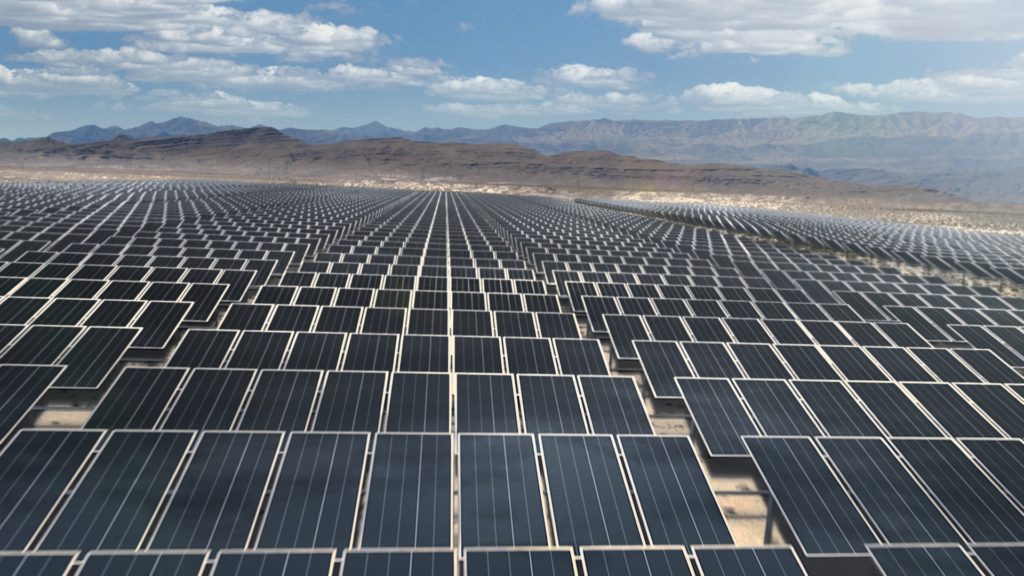
NV Energy has issued a request for proposals (RFP), seeking dispatchable energy and energy storage resources for the Nevada utility’s service area.
The RFP was issued last week, open to bids from developers of resources that can be in service before the end of 2028. Open to both renewable and ‘conventional’ generation, resources must represent at least 20MW energy production or storage, with bids due on or before a deadline of 14 March 2023.
Enjoy 12 months of exclusive analysis
- Regular insight and analysis of the industry’s biggest developments
- In-depth interviews with the industry’s leading figures
- Annual digital subscription to the PV Tech Power journal
- Discounts on Solar Media’s portfolio of events, in-person and virtual
Eligible energy storage systems (ESS) can be standalone or integrated with renewable energy resources. As well as having minimum 20MW output at the point of delivery to the NV Energy grid, energy storage technologies must be designed for daily cycling.
The utility said the capacity to energy ratio of standalone systems should be four-hour or eight-hour duration but welcomed bids from longer duration resources.
Meanwhile for integrated renewables-plus-storage bids, NV Energy asked bidders to provide two separate bids for AC-coupled systems. One bid would be for a solar resource with 100% of the integrated energy storage system’s (ESS’s) capacity and the other for 50%. For example, a 100MW solar PV facility would have a 100MW ESS in one bid, and a 200MW ESS in the other.
The energy storage system should be four-hour duration in either case. Whether standalone or paired with renewable energy, the projects should be eligible for the investment tax credit (ITC).
NV Energy, owned by investor Warren Buffet’s Berkshire Hathaway group, said in a bid document that the purpose of the RFP is to procure new renewable energy projects that contribute towards achieving Nevada’s statewide goal of 100% carbon emissions-free energy by 2050.
In order to do this while lowering energy and capacity costs, providing customer price stability and maintaining the long-term reliability and resource adequacy of the state’s electric system, the utility is also seeking firm capacity and energy from non-renewable resources — including energy storage and conventional generation.
This will, NV Energy said, support the system’s ability to meet demand at peak times and continue to integrate higher shares of renewable energy.
Bidders must already have in place legally binding rights to develop their renewable energy resources, which must be technologies that can produce renewable energy credits. That means solar, wind, geothermal, hydroelectric, biomass and biogas, although renewable energy credit-only proposals and proposals from existing facilities under NV Energy contract will not be eligible.
The utility estimated that it should be able to get the procurement process wrapped and contracts put before the regulatory Public Utilities Commission of Nevada (PUCN), by 21 November this year.
That will then kick off the timeline for gaining PUCN approval for 25-year renewable power purchase agreements (PPAs) and other types of contract, which will take up to 165 days. Other contract structures include asset purchase agreements (APA) for existing renewable resources and build transfer agreements (BTA) for projects already in development.
NV Energy has already surpassed a 1,000MW target for energy storage in its service area that was set for the utility as part of the 2019 Nevada SB358 renewable energy and decarbonisation legislation.
Notable energy storage developments for the company during 2022 included the January approval of two large-scale solar-plus-storage projects totalling 600MW PV and 480MW battery energy storage systems (BESS), which would be aimed at replacing the role on the grid played by a retiring coal power plant in Winnemucca.
NV Energy contracted to acquire those projects from their developer, Primergy. Primergy is also behind one of the world’s biggest solar-plus-storage projects to date, also being built in Nevada and contracted to serve NV Energy and its customers, Gemini, which will pair 380MW/1,416MWh of battery storage with 690MWac/966MWdc of solar PV in Nevada’s Clark County.
After US$1.9 billion debt and equity financing was secured for Gemini in April last year, investor Quinbrook sold a 49% stake in the project to institutional investor APG, a pension asset manager headquartered in the Netherlands.
Most recently, in December 2022, Energy-Storage.news reported that NV Energy had placed an order for a 220MW/440MWh BESS from Energy Vault, the startup best known as a developer of a novel gravity-based energy storage technology, but which has diversified into other areas including lithium-ion battery storage system integration.
Energy-Storage.news’ publisher Solar Media will host the 5th Energy Storage Summit USA, 28-29 March 2023 in Austin, Texas. Featuring a packed programme of panels, presentations and fireside chats from industry leaders focusing on accelerating the market for energy storage across the country. For more information, go to the website.






